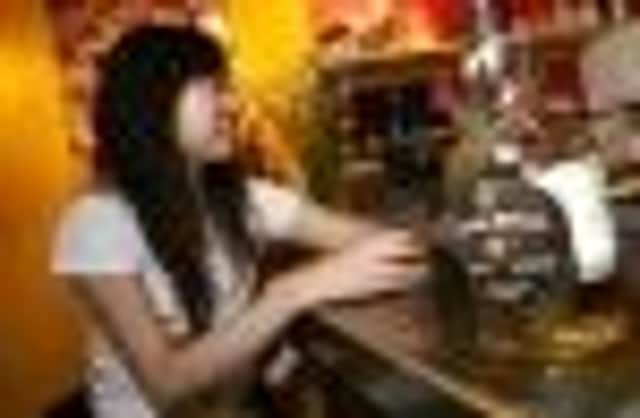Asian Scotch slowdown hits Pernod Ricard sales


The group – which owns Paisley-based Chivas Brothers, Scotland’s second-largest distiller – was hit by the Communist state’s leadership changes, which dented consumer spending.
The Chinese new year also fell later, which delayed some whisky buying until the firm’s next financial quarter.
Advertisement
Hide AdAdvertisement
Hide AdChanges in South Korea’s pubs and bars market made trading conditions “challenging”, while blended whisky brand 100 Pipers came under pressure in Thailand.
Closer to home, Pernod – which owns Absolut vodka, Beefeater gin and Jacob’s Creek wine – posted a 10 per cent drop in sales for its Chivas blend in France, where shops stocked up last year ahead of a rise in duty.
The eurozone debt crisis’ effect on consumer spending in Spain also continued to be felt, with the Ballantine’s blend understood to have been hit, though not as badly as other brands in the Iberian market.
The company had warned in October over the slowdown in Asia, echoing figures released by the Scotch Whisky Association trade body, which showed that exports flat-lined at £1.8 billion in the first half of 2012.
Yet there were still many bright spots for Pernod’s Scotch range during the six months to 31 December, with global sales of The Glenlivet single malt soaring by 21 per cent and even its ultra-expensive Royal Salute range chalking up 3 per cent growth.
The success at the premium-end of the market contrasted with an 11 per cent drop for global sales of its Ballantine’s blend as Pernod continues to shift towards higher-margin brands.
Overall, the group posted a 6 per cent rise in interim sales to €4.9bn (£4.2bn), driven by Martell brandy and Jameson Irish whiskey, with profits also up 6 per cent to just under €1.5bn.
Chief executive Pierre Pringuet said: “The good performance achieved this semester confirms the soundness of our business model: a comprehensive portfolio of first-class international and local brands, a premiumisation strategy enhanced by a strong innovation policy, and global exposure allowing us to capture all growth relays.”
Pringuet expects full-year profits to grow by 6 per cent.
Advertisement
Hide AdAdvertisement
Hide AdShore Capital analyst Phil Carroll cut his recommendation on Pernod from “buy” to “hold.”
“Normally Pernod guidance is particularly cautious and it easily overdelivers but, in the current year, we expect 6 per cent profit growth to be just that,” he added.
Eddy Hargreaves, an analyst at Canaccord Genuity, noted that Pernod could not compete with Johnnie Walker-maker Diageo to buy brands or producers in emerging markets because of its high levels of debt.
He added: “This is a robust performance by Pernod, but the outcome of Chinese new year sales overall remains somewhat unclear; similarly in France, the market is still under significant pressure, and likely to remain so.
“We continue to be exercised by the likelihood of a slowdown in China. ”